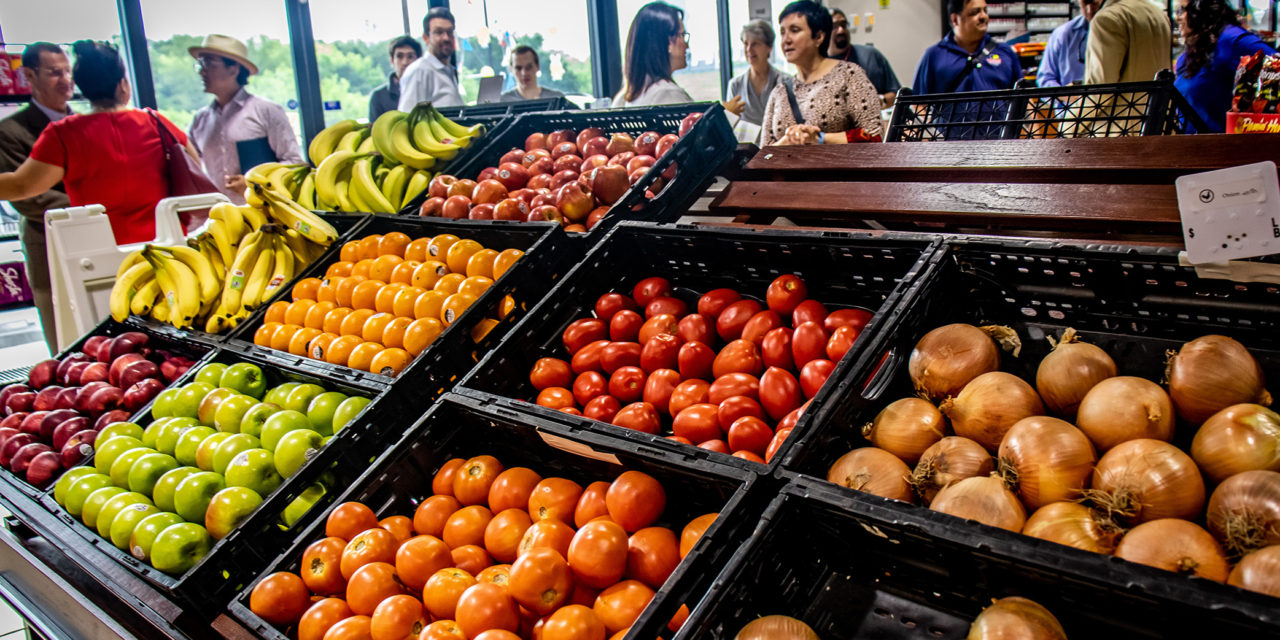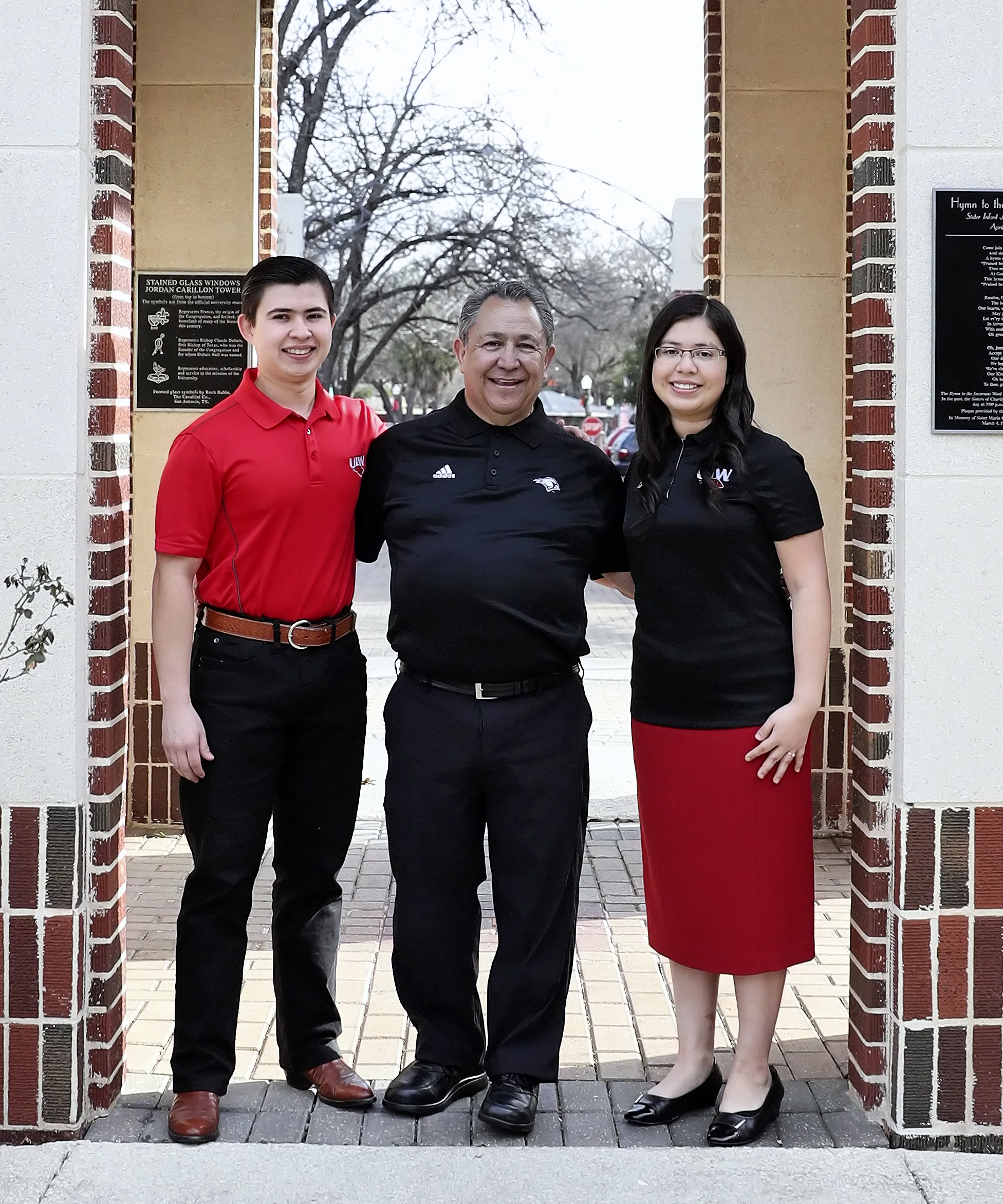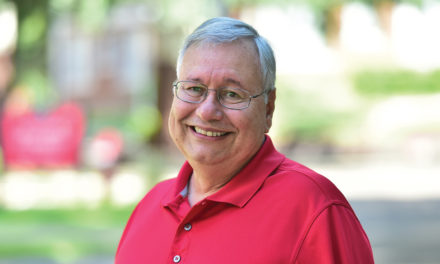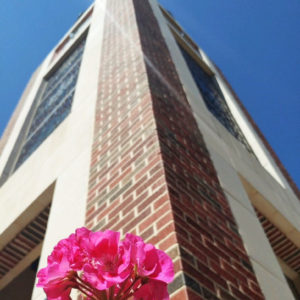By Katie Hennessey
This spring, city leaders and the UIW School of Osteopathic Medicine worked together to launch a new a pilot program in an effort to bring healthy, affordable foods into convenient stores. The VIVA San Antonio Healthy Corner Store Initiative targets food deserts, or areas ailed by limited access to non-processed, whole foods. The Red Rooster Food Mart, located in Southside San Antonio’s District 3, was the first site to stock their shelves with fresh produce.
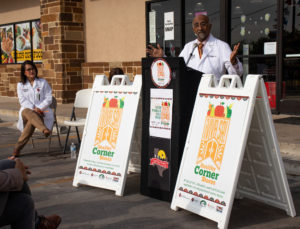
UIWSOM’s Dr. Anil Mangla opens VIVA SA Healthy Corner Store Initiative launch ceremony nearby research partner, Dr. Emma Santa Maria.
“I grew up in a food desert,” Mr. Lopez, a local citizen attending the launch said. Two of the major grocery stores near his neighborhood closed down, and his family had scarce access to transportation. “It was one of those things where you buy for the whole month, knowing you are not going to be able to get out to a grocery store for another thirty days, so you pick up what you need from a convenient store in the meantime,” Lopez said.
“It didn’t help when there was a [fast food restaurant] right around the corner, especially for someone like my father, who is diabetic and on a limited budget.”
In Bexar County, 14.3% of adults have been diagnosed with diabetes. That’s higher than the state and national average. When you look at the San Antonio’s Southside, almost half the population lives with diabetes.
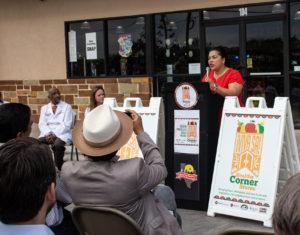
Councilwoman Rebecca Viagran responded to the need of District 3 constituents to bring healthy foods into neighborhood food marts.
“You all know the statistics in San Antonio, that the northern part of Hildebrand [Ave.] has a 20-year longer lifespan than south of that area,” Councilwoman Rebecca Viagran of District 3 said. “By creating pocket grocery stores with reliable access to affordable produce we will enable residents to have access to healthier options.”
A study by UIW School of Osteopathic Medicine (UIWSOM) faculty members, Dr. Emma Santa Maria and Dr. Anil Mangla, found that if diabetic patients are able to reduce their A1C (a blood sugar measurement) by just 1%, the risk of foot amputations, blindness, heart disease, stroke and kidney failure is significantly reduced.
No medication, no treatment necessary. “All it takes is exercise and fresh food,” according to Mangla, director of public health and research.
When the Food Policy Council of San Antonio, (FPCSA) proposed data on community well-being through improved health food access, Viagran’s constituents were already expressing needs for a neighborhood market, or some way residents could attain whole fruits and vegetable. Councilwoman advocated for an amendment to the district’s budget to grant $50,000 allocated to research, in-store nutritional education and subsidizing the cost of produce to be added to corner store shelves throughout the food insecure district.
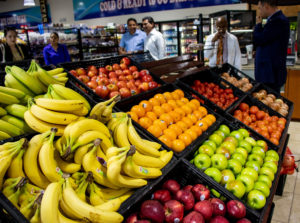
Red Rooster Food Mart filled bins with fresh fruits and vegetables distributed by River City Produce.
Red Rooster is the first of 10 corner stores in the area to open their doors to fresh produce. The accessibility and affordability of the high-quality raw foods is supported by a plan to educate the community in nutrition and cost-effective ways to use the foods.
“We really want to work with nutritionist in each of the corner stores, to teach people how to cook a little bit healthier,” Santa Maria said. On-site nutritionist “will teach them how to incorporate fresh fruits and vegetables into their breakfast, lunch and dinner.”
UIW’s School of Osteopathic Medicine campus location within District 3 is a placement well-suited for an institution grounded in social accountability. With the osteopathic heritage constructed on principles of compassion and the tradition of community outreach shaping the history of UIW, the school continues the mission, looking directly into the needs of their neighbors, incorporating themselves into the solution.
“When councilwoman brought this to our table, we thought, it’s perfect with our research,” Santa Maria said. The researchers were already focusing on diabetes, obesity and the impact a healthier lifestyle would make on these chronic diseases.
Mangla believes creating access to low-cost produce in food desert communities of San Antonio, will not only impact the health of the community, but the effort will end up saving the city over $400 million dollars in health-related costs.
VIVA SA Healthy Corner Store Initiative will evaluate success of pilot program and look at expanding to other economically unstable areas of the city. The collaborative came together through city leaders and researchers, including Metro Health, Council District 3, FPCSA, San Antonio Food Bank, Happi Foodie, River City Produce and UIWSOM.
“This is our home,” Santa Maria said. “If we live in this community, we are going to give back to this community.”

